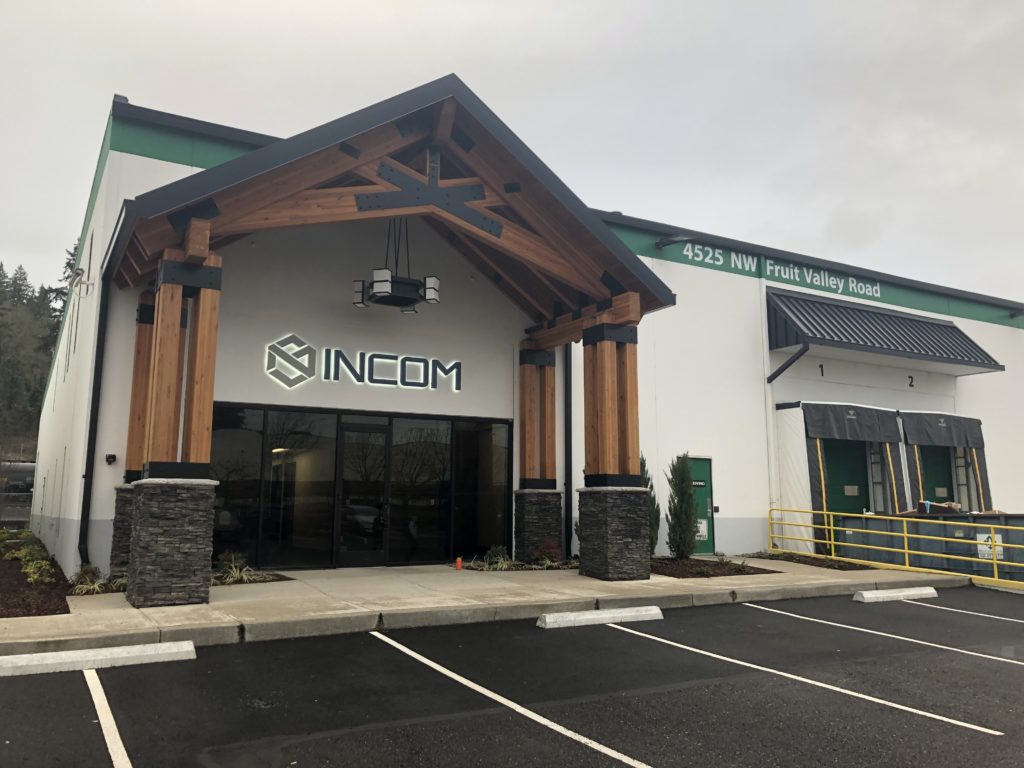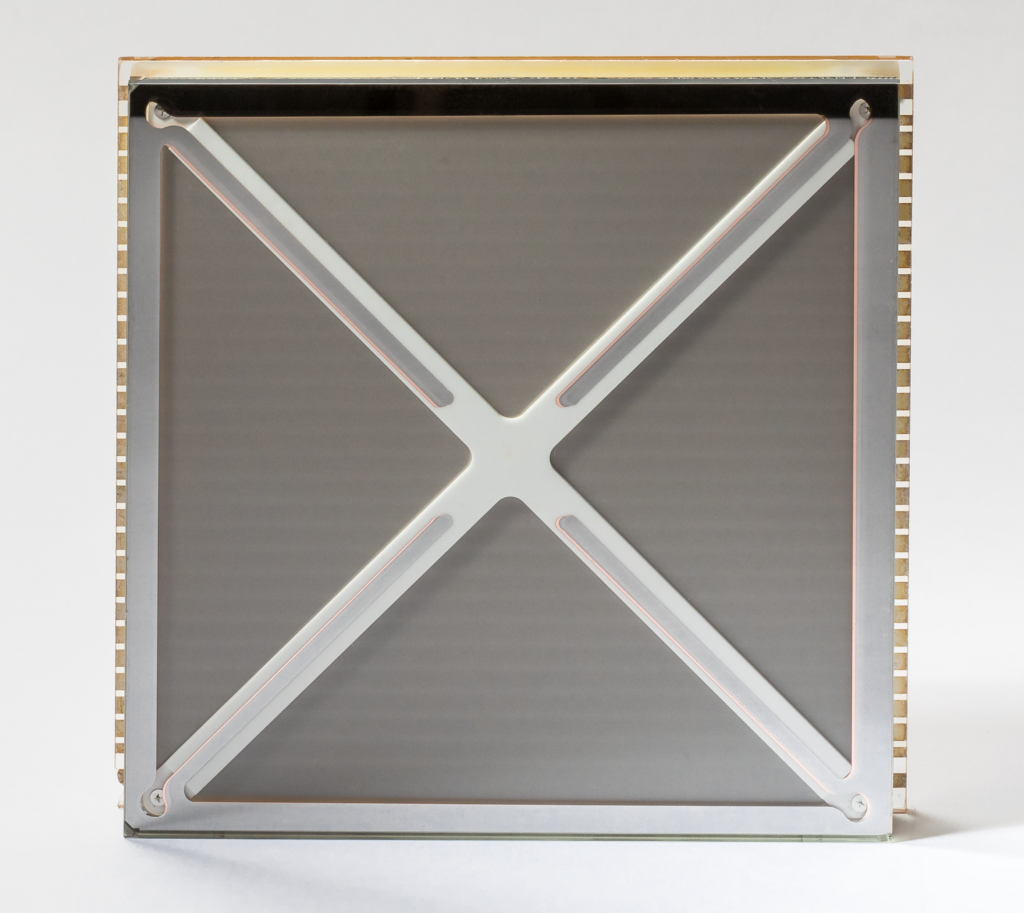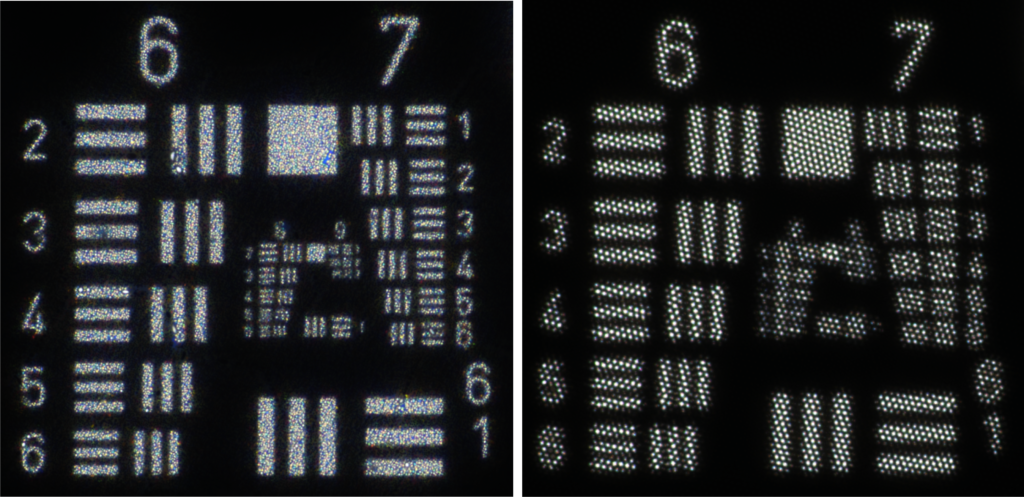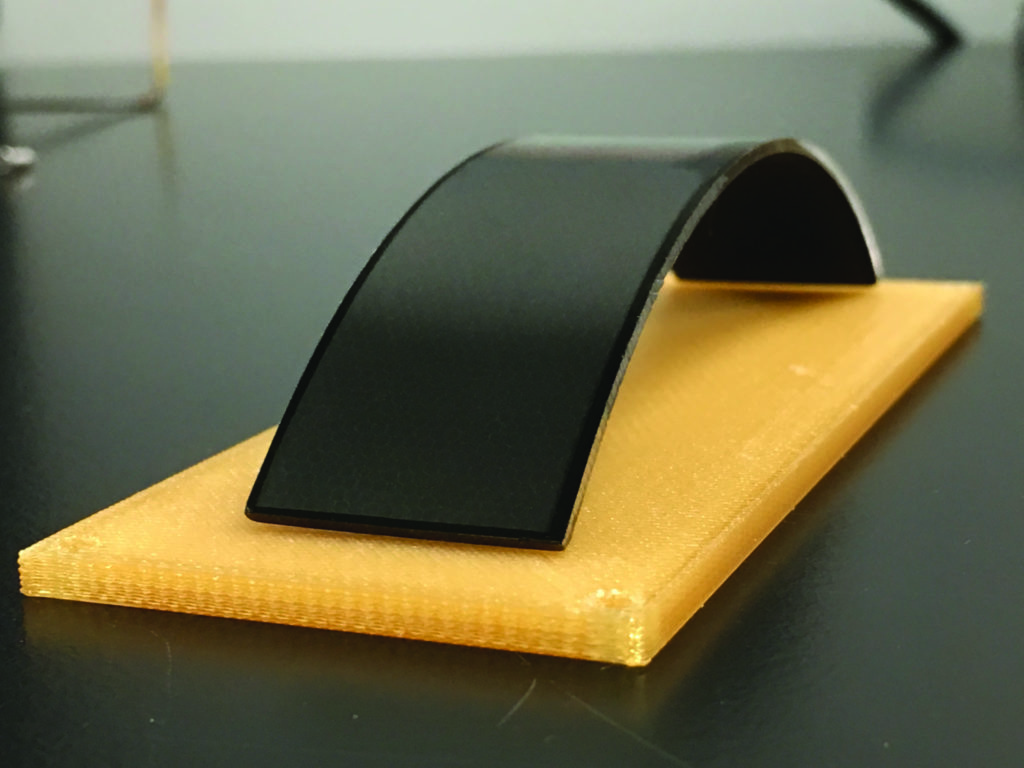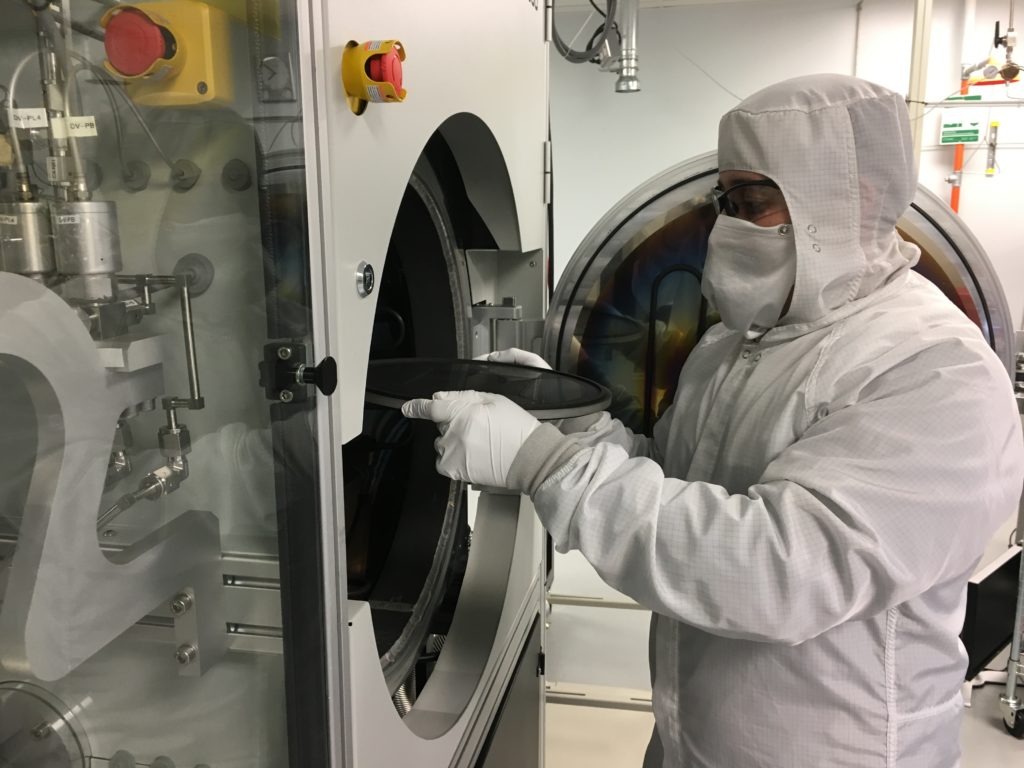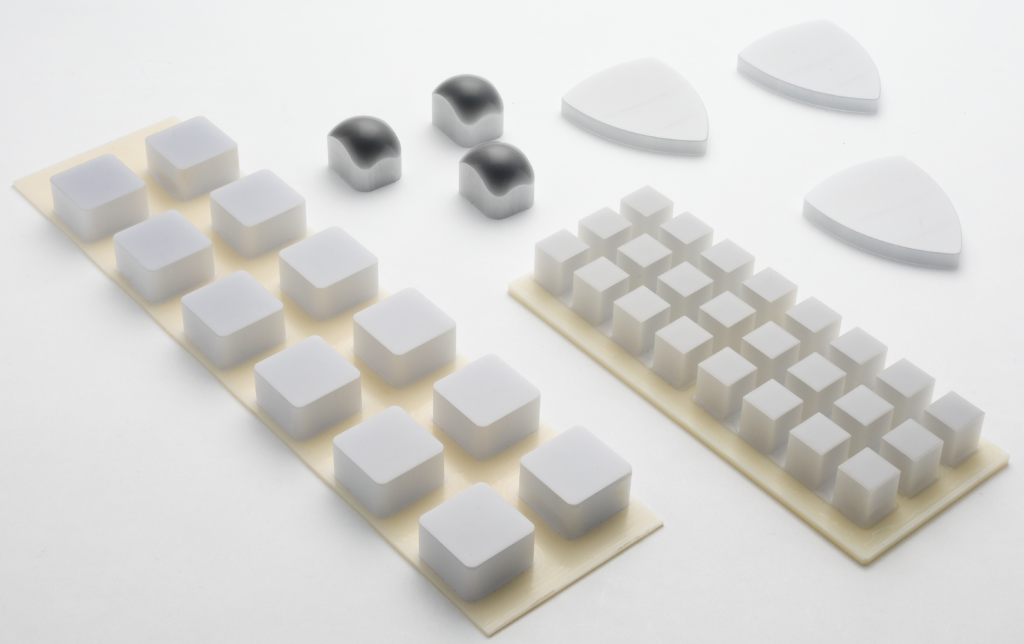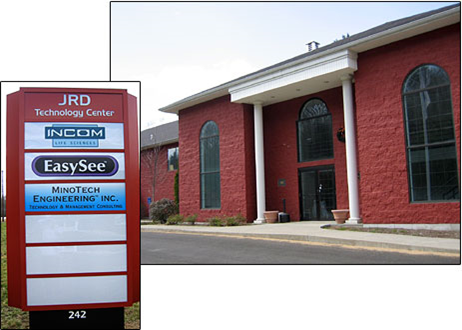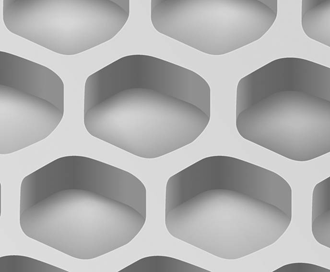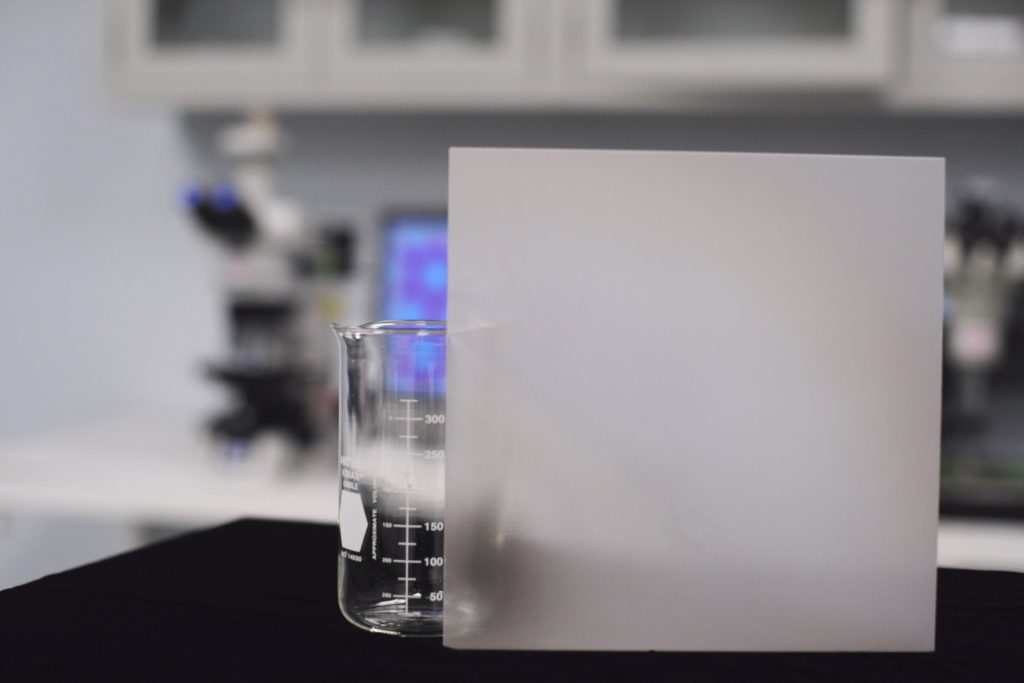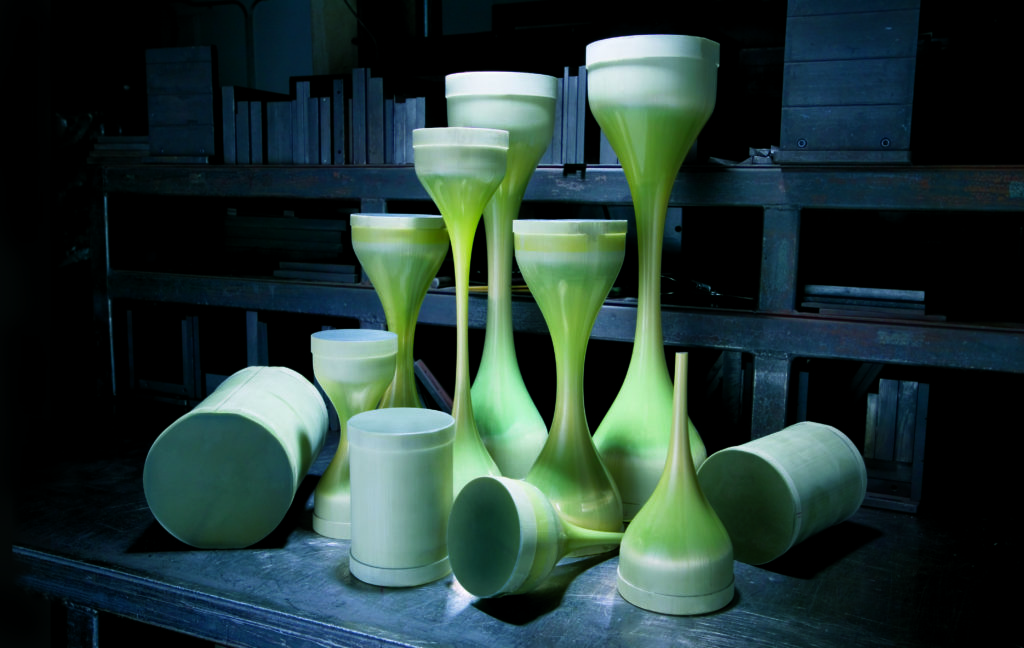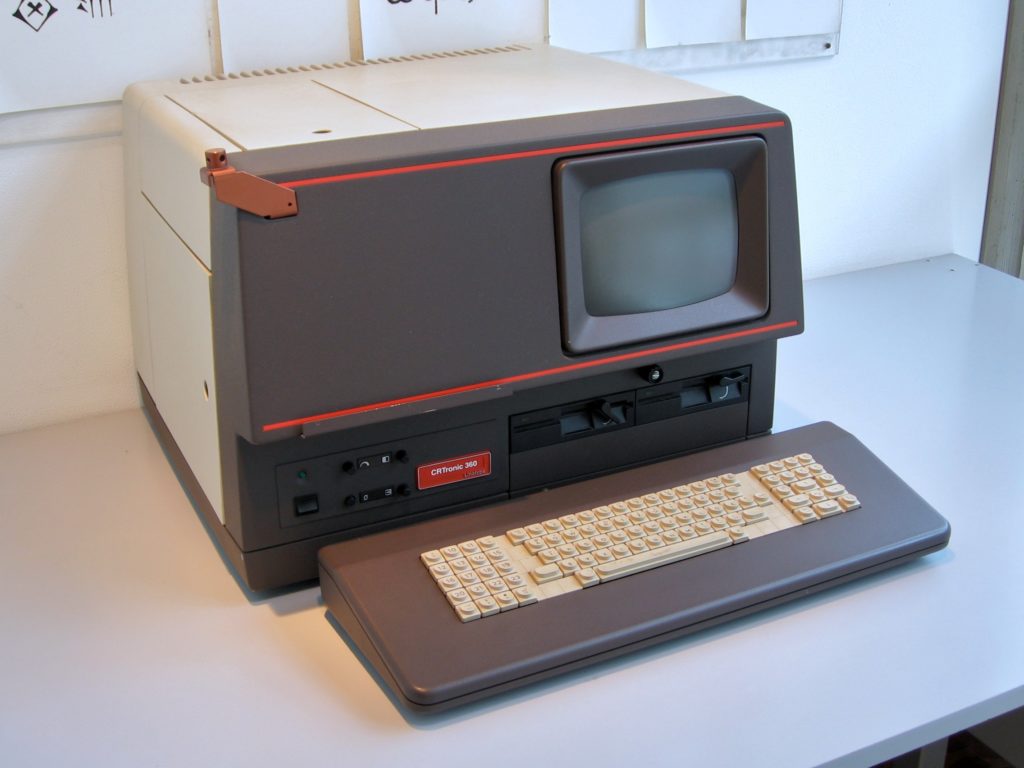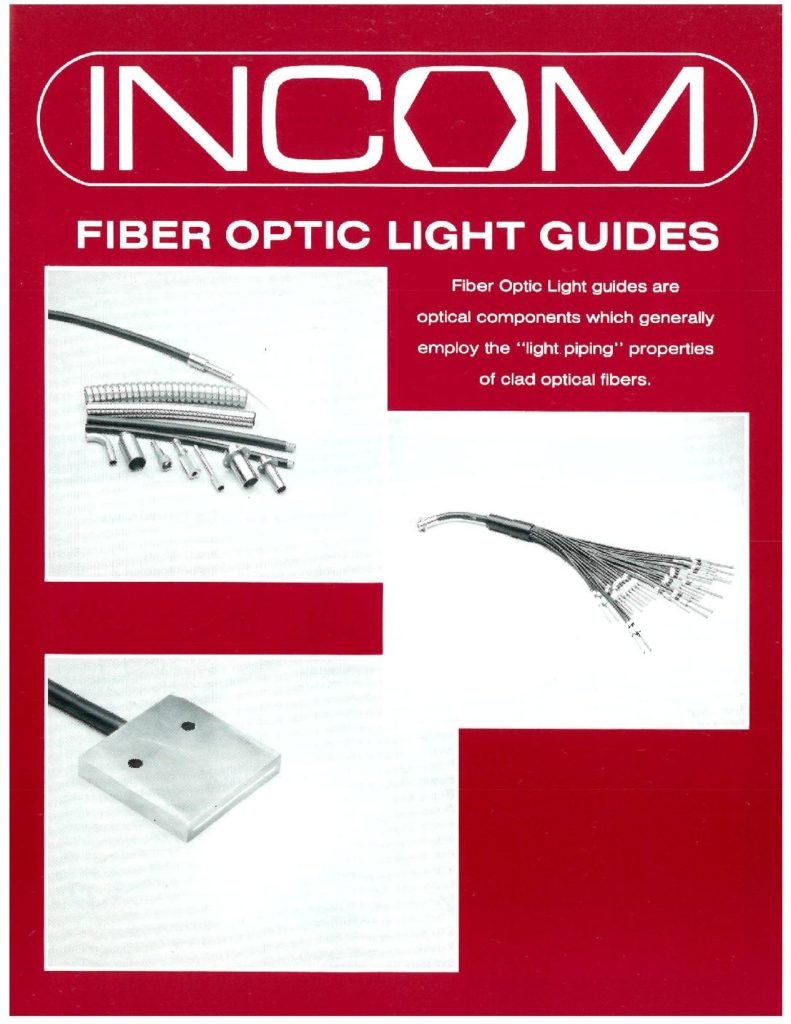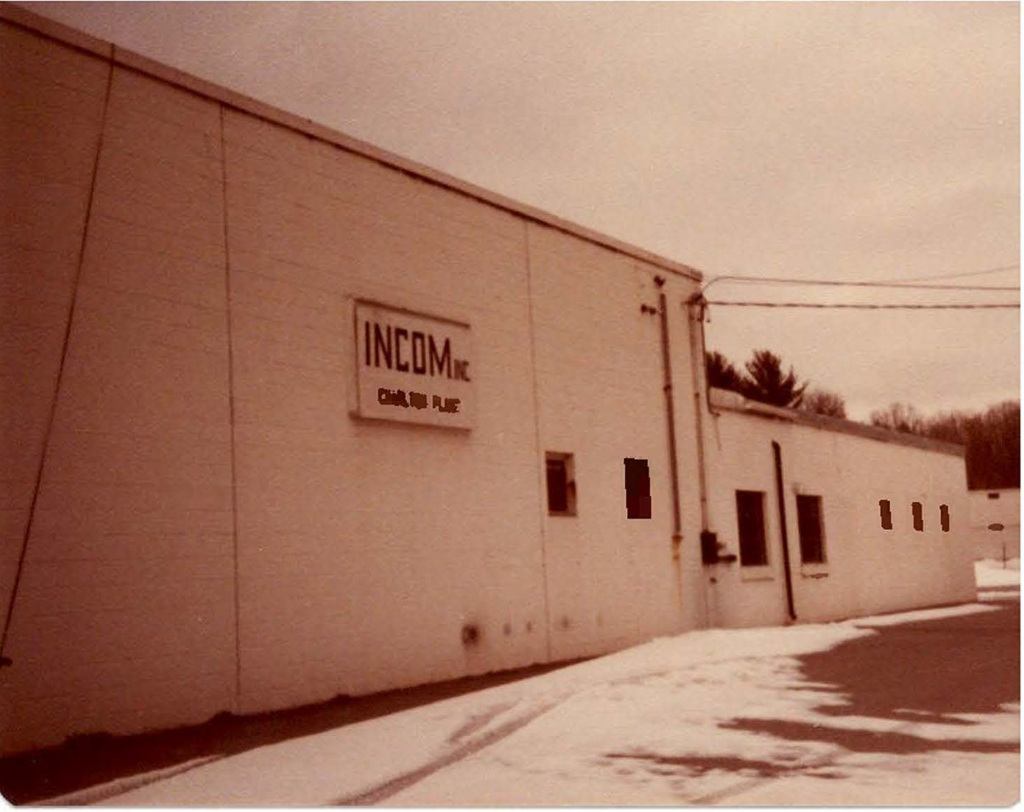In January 2019 Incom completed the first phase of its nearly 10x expansion into a new 45,000 square foot facility, investing millions of dollars in new equipment and increasing its workforce to over 40 personnel. The new facility will enable it to service its increasing customer base for polymer products. Incom’s new west coast facility has room for further expansion as polymer demands increase.
After receiving Grant Funding provided by The US Department of Energy, Incom was able create an infrastructure and demonstrate a pathway toward pilot production of Large Area Picosecond Photodetectors (LAPPDs). Incom was able to develop critical process methods to successfully hermetically seal a full size (20 cm X 20 cm) functional LAPPD.
In June 2015 Incom developed and patented a novel image transfer device based on a quantum mechanical light guiding mechanism. This new light guide has world record resolution that is four times greater than what is achievable with the standard core-clad light guide mechanism. Future work in scintillating Nanoguide will enable the fabrication of high-performance scintillating faceplate that were previously not feasible due to the inherent limitation of standard scintillating fibers.
In early 2015, Incom won an SBIR contract to develop curved MCPs for spaceflight use. Curvature allows the MCPs to conform to the natural geometry of a compact spaceflight instrument. MCPS in virtually any shape are possible with the Incom approach of bending a glass substrate to the desired form, then applying thin films to obtain MCP performance. Incom produced two pair of cylindrical curved MCPs in late 2015. One pair had a 75 mm radius of curvature, 90 degrees of arc, and a 25 mm width. The other pair had a 20 mm radius of curvature, a 180mm degree arc, and a 25 mm width. There is no other known source of MCPs with such considerable curvature.
In December 2014, Incom received the Companies first ALD Coating instrument, which was commissioned and accepted from BENEQ in March, 2015. Prior to acquiring the instrument, Incom worked to develop a process that would allow in-house implementation of Atomic Layer Deposition coating methods in order to produce the world’s largest microchannel plates.
In February 2012, Incom completed its acquisition of Paradigm Optics. The purchase of Paradigm Optics represented Incom’s continued investment and commitment to providing the most advanced fused fiber optic technology available to their customers. Paradigm’s polymer fiber optic technology will allow Incom to further service the needs of its customers allowing it to service the display industry with polymer-based image guides. Paradigm Optics President and CEO David Welker remained as director of polymer products, continuing to oversee all activities at the Washington location.
Incom has always placed a high premium for doing innovative product and process development. In 2011, Incom formally recognized a dedicated Research & Development organization, establishing laboratory and office space in the JRD Research Facility. The R&D team is composed of innovative scientists and technicians who work to develop product that will sustain Incom’s growth well into the future.
In November 2008, the genome of an extinct Wooly Mammoth is sequenced almost to completion with the key to success being an Incom microwell faceplate. Incom’s microwell fiber optic faceplate is one that has been etched to remove the core material, creating millions of tiny wells (test tubes) for the depositing of DNA beads for sequencing tests. Incom was able to produce an abundance of plates for 454 Life Sciences which helped pave the way to the discovery.
A 2006 Small Business Innovation Research grant (SBIR) from the National Science Foundation facilitates the development of Glass Capillary and Microwell fiber optic faceplates. With their dense patterns of miniature tubes, wells, and passages, these faceplates allow for high speed, high density sampling.
In 2003, Incom manufactures the largest diameter fiber optic tapers ever made. These tapers capture huge imaging areas up to 200 mm in diameter with very high and unprecedented resolution, becoming the dominant enabling technology in x-ray crystallography. Incom tapers and faceplates also play an increasingly vital role in the digital revolution in medical x-ray technology and electron microscopy.
Incom responds to tightened government requirements for night vision equipment by utilizing its patented MEGAdraw process. The process allows for the most blemish-free, low distortion, zero-shear fused fiber optic components available for night vision goggles, helmet-mounted displays and cameras. Incom quickly became a trusted supplier to the U.S. government.
1986 marks the development of the revolutionary MEGAdraw process. With applications ranging from image intensification to x-ray imaging, this process positions the company for future growth and provides a major competitive advantage.
Incom’s foray into night vision is launched in 1985 when the company begins to produce a fiber optic taper for image intensification in a viewer used by U.S. Army combat tanks. Next came the IRIS system, a technological breakthrough that helped facilitate U.S. superiority in night warfare.
Incom further develops a fiber optic CRT product that writes on photographic paper, allowing newspapers, books and magazines to be automatically typeset. This new technology becomes a mainstay for Incom and all but eliminates the one-metal-letter-at-a-time approach to printing, paving the way for modern-day printer technology.
Capitalizing on the vast capabilities of the company’s faceplates for Cathode Ray tubes, Incom enters a new market with dental curing tips. Incom becomes the most relied upon manufacturer of light guides and eventually expands this technology to include light guide tapers for endoscope illuminators.
After several years of building the business and slowly increasing sales, the unexpected loss of a major customer necessitates a financial overhaul. After painstaking negotiation, in which Anthony M. Detarando played an instrumental role, the Detarando family acquires a majority stake in the company, signaling a new era of growth, investment, and innovation.
By the beginning of 1973, Incom successfully manufactures its first fiber optic faceplate, a product that becomes a core focus for the company and eventually paves the way for Incom’s state-of-the-art development and dominance in the digital x-ray industry.


